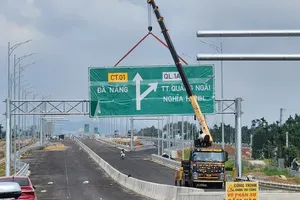
The draft of the new Law on E-commerce was presented to the National Assembly Standing Committee at this morning's conference.
The proposed legislation introduces significant new requirements for both domestic and foreign sellers, as well as the platforms they operate on.
A key provision of the draft focuses on seller identification. E-commerce platforms would be mandated to verify domestic sellers via VNeID, Vietnam's digital identity app, while foreign sellers would be identified through legal documents.
The draft also places the onus on platforms to implement automated systems to censor and remove any infringing information.
The bill extends its reach beyond traditional e-commerce, adding specific responsibilities for entities involved in livestream sales and affiliate marketing. This includes verifying livestreamer identities, monitoring content in real time, and ensuring transparency across all parties from owners and sellers to products and transaction conditions.
For social media platforms that facilitate e-commerce, the draft proposes that they must have a function to classify seller accounts, separate sales content, and provide a tool to confirm contracts. Multi-service platforms face obligations to prevent the abuse of monopoly positions, such as restricting them from forcing integrated platforms to use their services.
A notable requirement for foreign platforms is the mandate to establish a legal entity in Vietnam or designate a local representative. This entity would be required to deposit funds at a Vietnamese bank to guarantee consumer compensation. Additionally, foreign sellers would face the same transparency requirements as their domestic counterparts to ensure fair competition.
The draft also expands responsibility to include technical infrastructure providers, logistics, payment services, and electronic contract authentication. These entities would only be allowed to work with legally compliant e-commerce platforms and would be required to cooperate with state agencies to handle violations.
However, the bill has not been met without criticism. The National Assembly’s Economic and Financial Committee expressed concerns that the scope of the draft is too broad, potentially overlapping with existing laws like the Law on Cyber Security and the Law on Digital Transformation.
Head Phan Van Mai of the National Assembly’s Economic and Financial Committee emphasized that a clear boundary must be drawn for what constitutes e-commerce activities. He also noted that issues like counterfeit goods and tax evasion cannot be solved by this law alone, but require a comprehensive legal system.
Auditing representatives also cautioned against the draft, urging policymakers to prioritize innovation and avoid creating additional administrative burdens or compliance costs for businesses.
























